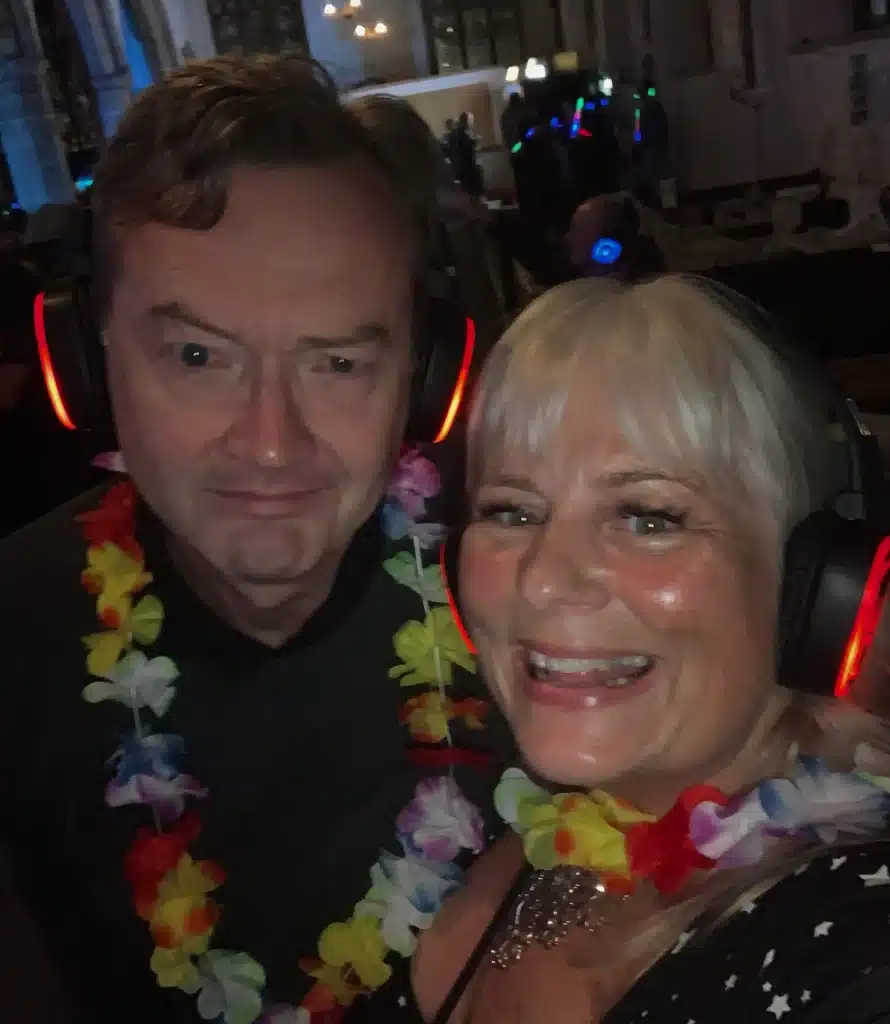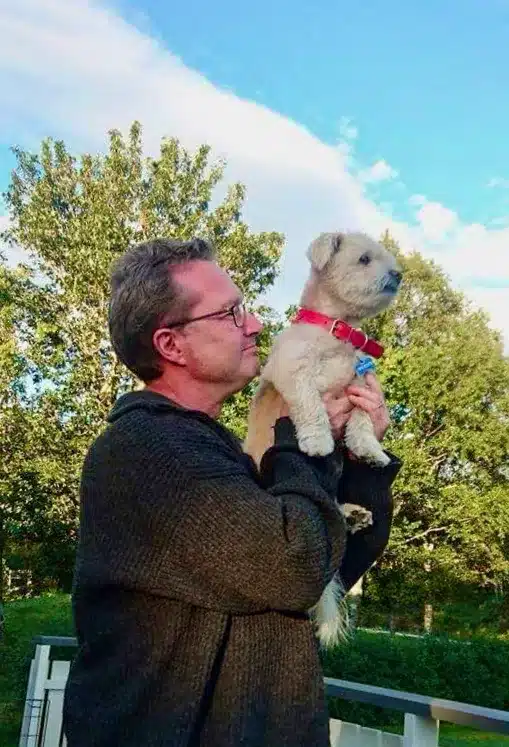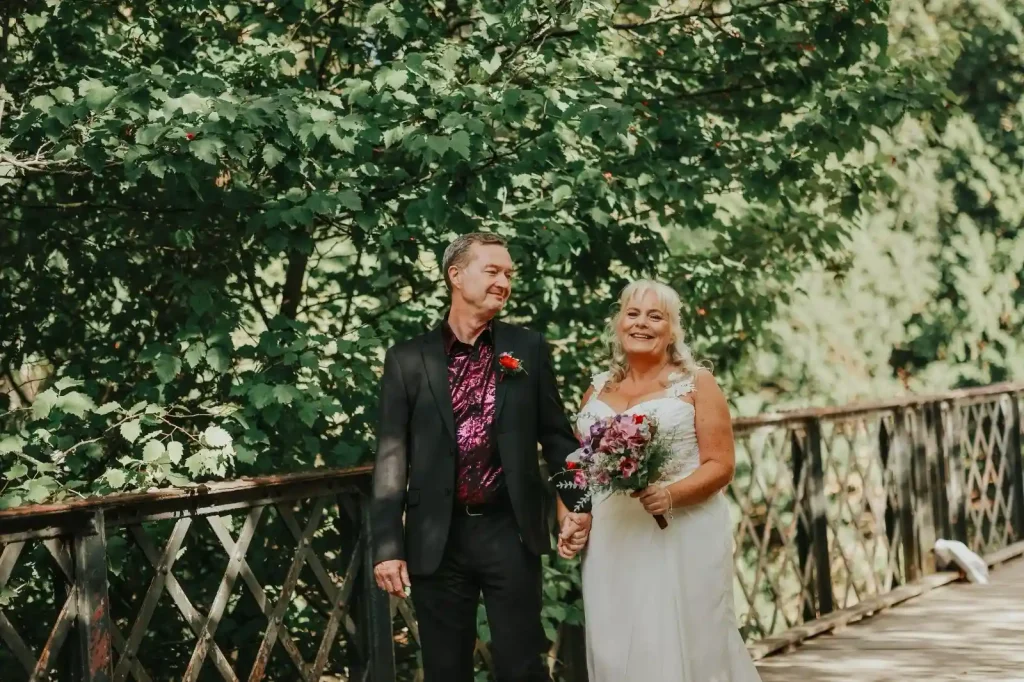The midlife crisis: pathetic panic or personal growth?
In the Nordic languages, panikkalder is a word used for a period of crisis in a person’s life. It means, literally, ‘panic age’ and is most frequently used about the midlife crisis, usually scornfully and mockingly.
Some might say I hold the Norwegian national record in ‘panikkalder’ or midlife crisis. I’ll return to that. I’ll use my ‘crisis’ as an example to challenge some common attitudes:
- Is it really fundamentally wrong to make significant changes midway (or even later) in your life? Would people hold it equally against you if you made the changes while you were younger?
- And if you do, is it necessarily so that such changes are made in a state of blind, pathetic panic because you ‘suddenly’ realise you’re growing old?
- And even if the changes are born in a crisis, is it always so that a crisis is a bad thing?
Let’s examine people’s attitudes a bit more. Say hello to the typical panic-age person.
(Featured image: Woman on a motorbike – AI-generated illustration.)
The typical panic-age person
He’s a man in his fifties who suddenly starts doing unacceptable things (in other people’s eyes). This happens out of panic because he’s ‘over the hill’ – physically and sexually. For instance, he might start chasing women much younger than himself or decide he needs £100,000 car.
He’s despicable, isn’t he? Comical, even. Let’s have a laugh behind his back. He doesn’t want to face reality and acts out of denial and fear, trying to be someone he can’t be anymore.
Well, the behaviour of some incarnations of this panic-age man might be debatable. For instance, if he gets too drunk at the office Christmas party and makes unwanted advances towards his younger female colleagues. Or if he buys a car that costs four times more than he can afford instead of looking after his soon-needed pension.
Let’s say he is motivated purely by fear and confusion in his testosterone deficiency. In that case, is laughing at him ethical? Shouldn’t we instead show some patience and understanding, just like we should do towards teenagers in their hormone-induced bewilderment?
What about deliberate, personal choices?
Let’s look at another incarnation of our man, the one who squeezes his increasingly aerodynamic body into a tight leather suit and sets off on his new motorbike. Or a woman, by all means, we see many beautifully matured women dressed in close-fitting leather suits on motorbikes these days.
Yes, of course, they might be unable to face diminishing physical strength and fading attractiveness and believe a big machine between their legs can be a good substitute.
But it’s not necessarily so. They might have been dreaming of this all their life. And now is when they finally can afford the dream to come true. This isn’t blind panic. This is a personal choice. And who are we to judge them?
“Yes, but…”
Oh, I could hear you. Some of you in the back row were thinking:
“Yes, but they are too OLD”

Let’s talk about Sarah. She sold her car and bought herself a motorbike at age 57. Thus, she fulfilled a dream since childhood, when her father sometimes took her on a drive on his Triumph Bonneville T120. Riding her own motorbike now brings up so many happy memories.
What about Toby, 51, who jumped off a prosperous enough career as an estate agent? Against his wife’s advice (and wild protests because they had to downsize to afford it), he re-educated himself as a primary school teacher. “I hated working as a salesman. It wasn’t me,” Toby said.
And Molly, 59, ended a relationship that wasn’t good for her after 42 years. The children and grandchildren were in a total state of shock. But Molly quietly said, “I think I deserve some happiness too.”
If you’re uncomfortable with my three fictitious friends’ choices, would you have been equally put off by them if they were all in their twenties? No, perhaps not, so:
Are we simply talking about ageism here?
Sarah simply made a practical choice: to own a motorbike instead of a car. If Sarah had been 27, we would perhaps have found it daring, intriguing, even sexy. But in reality, Sarah is 57, and most of her friends think she’s started to lose it a little bit.
Toby made a bold decision and changed his career path. If he’d been 21, we would hardly have cocked an eyebrow over this. But now, at 51? And his wife had to put up with moving to a smaller house!
Molly was unhappy in her relationship. If she had been 29, I bet most people would have cheered her on: “Get out of there now! You have all the right in the world to seek happiness! Go, Molly, go!” But Molly was almost 60. Her family called her selfish and stonewalled her.
Sarah, Toby, and Molly did not act in a state of confused panic. They made deliberate choices to improve their quality of life. So I wonder:
At what age, exactly, do we lose the right to change our lives?
How can we justify, for instance, in the case of Toby, that something that felt wrong and was wrong for him magically becomes not only ‘right’ but also untouchable and unchangeable according to the people around him?
At what point in time, exactly, did this happen and why?
We can’t pinpoint a specific time and age, of course. But the longer we live, the more we become a ‘habit’ in the lives of people around us. For family, friends, and sometimes colleagues, one day, we become a part of their furniture. They stop seeing us as living, evolving persons with our own needs. This is how they’ve known us, and so do they want us to stay till eternity. People generally don’t want their furniture to change spontaneously.
How about people further away from us? Why do they even care if we buy a motorbike, get a new job, or leave an unhealthy relationship? Still, they do. And the harshest judges are often our peers in age. How can that be? Shouldn’t they be our enthusiastic supporters?
A wild guess: could it have something to do with jealousy? Perhaps they also (secretly) want to change their lives but don’t. And shame, perhaps, because they aren’t courageous enough to do so? A lot of bitterness can be found in the alloy of jealousy and shame.

But a crisis, for God’s sake, we don’t want all that fuss!
Because Toby and Molly waited so long before they made right what was wrong in their lives, they most likely needed some kind of crisis to shake them awake and jolt them into action. That’s the way it is with many of us.
Including me, as I will return to.
We all make some bad choices in life. We can’t always know, at the time of choosing, what the consequences will be. We might have painted ourselves into a corner by the time we realise something’s wrong. Mortgages and young children, for instance, can make it extremely difficult to change course for a while.
And then we become a part of our own life’s furniture as well. It’s easiest to let it be and go with the flow. Until something happens, and we just can’t stand it anymore.
But remember, now:
A crisis isn’t necessarily a bad thing
Not in the long run. Even if it’s scary and heartwrenching when it happens.
One of the most terrifying global crises in modern history happened in 1962 when the Soviet Union deployed nuclear missiles on Cuba, which is virtually on the doorstep of the United States of America. The world balanced on the edge of nuclear war for a couple of weeks, but this grim scenario led the rival superpowers to cooperate more and communicate better. For instance, the famous ‘red telephone’, a hotline between Moscow and Washington, was established.
On a more personal level, it’s said that J. K. Rowling was fired from her secretary job because she spent too much time daydreaming about storylines. This undoubtedly led to a temporary financial crisis for Rowling, but she got the opportunity to write the stories about Harry Potter. The rest is history, and this history was hardly bad for Rowling in the long run.
And what about my national-record-size midlife crisis? Well, let’s look at the backdrop first. Let’s peek into my bathroom one morning in 2017:
Standing eye-to-eye with mortality

I was 52, and I wrote this short, haiku-like poem:
In the glaring morning light
from the mirror
the slow voice of erosion
We all reach this day, sooner or later, when we realise our days are numbered. And this is a fact. We’re forced to realise we don’t have all the time in the world anymore. As if we ever had.
But I didn’t feel any panic this morning. I had no urge to chase young women or buy expensive cars. I didn’t want to ride a motorbike (I never did), change my lifelong career in IT, or end my 24-year-long marriage. Ah, because I was happy with my life, you might ask? No, because I had capitulated.
I didn’t believe change was possible and had no aspirations or direction. I didn’t want to fight ageing. Honestly, I looked forward to it, only hoping to proceed to the end with as much dignity and as little suffering as possible. In a way, I had quietly been dying a little every day for decades.
So, what happened?
Two quiet revelations
Three years later, in the summer of 2020. The COVID-19 pandemic had struck a few months before, and I was working from home. Even though I had a busy job, this unexpected solitude and quiet gave me more opportunities to think and feel. And I felt empty. Hollow.
Early in July, I joined an online peer support forum for people with diverse life challenges. Having overcome my fair share of obstacles over the years, I thought I could perhaps help someone out there—at least, this was my conscious thought.
I immediately started exchanging messages with a person living in England. This was a pure coincidence, but two things struck me:
- How similar to myself this person seemed to be. It felt so surprisingly easy to ‘talk’ to her, so strikingly different from anyone I’ve ever known. And I had never before let a person through my protective armour that quickly. Which soon led me to realise:
- I had not joined that online forum to help others. The truth was, I desperately needed someone to talk to myself. I understood I had felt lonely all my life. Including 27 years of married life! This realisation hit me like a punch in the face.
I presume you’re not surprised if I tell you this ended in:
A rather loud crisis
As I write this, the person I began ‘talking’ to (that is, messaging) in the summer of 2020 has been my wife for over two years, even though neither of us was originally seeking a relationship or a new partner.
However, after just a few days in July ’20, I saw this person as a close friend. After a week, I called her my ‘little sister’. Because neither of us had any ‘improper’ intentions, I even told my first wife all about what was happening, which didn’t go down well at all.
From an objective perspective, I can understand this now. It’s understandable that my first wife found the situation threatening. However, the following discussions also made me understand why I had felt lonely through all those years of marriage. Sometimes, two people just aren’t compatible. That’s the bottom line.
I could have stopped speaking to my new friend, my ‘little sister.’ That would have resolved the issue for my first wife. However, I was aware that my problem had begun a long, long time ago, and conversing with my ‘little sister’ was merely the catalyst that triggered an overripe chain reaction.
So, I made:
The first personal choice of any significance in my life

I was 55 years old and had always done what others expected of me. Now, I was suddenly ready to jump off a cliff in complete darkness. I couldn’t see what was down there, what the future would bring; I knew only one thing:
My newfound ‘little sister’ would remain a part of my life, in one way or another, for as long as she wanted. Even if it meant she would just be an online friend I’d never meet in real life. Even if the price I had to pay was my marriage.
Why? Because my ‘little sister’ was the first person ever to make me feel accepted, respected, liked, and simply good enough, just as I am.
This was such a mental revolution that I knew I could never give her up. If I did, I would regret it every day, every minute, for the rest of my life. And I would rather die immediately.
I chose to live.
This moment was when I changed from being a notorious people pleaser into the Deliberate One. I started:
My biggest project ever
I had worked as a project manager for years, but nothing compared to this. At the start, the only project objective I knew was to end my loneliness. I didn’t know exactly how, but I was determined to try before it was too late.
In May 2021, I moved out of my house and marriage.
By September, I’d received two Covid vaccinations and could finally travel without having to quarantine. My first visit to England confirmed what I had secretly hoped for: my ‘little sister’ couldn’t be my sister in real life. She had to become my wife. For the rest of my life. I had never wanted anything more than this, and I acted upon it:
- We got married in Copenhagen in September 2022 (for two people of different nationalities, Denmark is one of the least complicated places to have it done).
- My UK visa was granted in January 2023 (and the process to get there is like pulling a camel through the eye of a needle, now after Brexit).
- I left my country of birth and the city I’d lived in for almost 40 years.
- I left the job I’d held for 15 years.
- I started a new career (which isn’t necessarily easy for an immigrant in his late 50s).
- I solved all the practical obstacles blocking the way to an ordinary life (do you know, for instance, how difficult it is to open a regular bank account for an immigrant?).
- I adapted to the cultural differences between Norway and the UK and settled in.

So, I wonder:
Do you, honestly, think of me as a confused ‘panic age’ man?
Let’s return to the prejudices I wanted to challenge in this article.
Was it wrong to make changes like these late in my life?
At least it can’t be more ethically wrong than making the same changes earlier. Perhaps it’s less wrong, for instance, because I didn’t have young children anymore. The question must be: is it fundamentally wrong, at any age, to break out of an unhappy life and seek a happy one?
For me, ethics is about minimising suffering as much as possible for all living beings. I did, of course, inflict pain through my decisions. Both my first wife and my adult daughters endured suffering for a time because the future, in some respects, did not turn out as they had expected. I wish I hadn’t caused this pain, but I still can’t regret my actions.
Because this time, I included myself in the equation as well. For the first time, I took responsibility for my happiness. And for my previous ‘little sister’, now my wife. We are also living beings with as much right to happiness as anyone else.
I have never, despite the hardships, doubted I did the right thing.
Did I make my decisions in blind, pathetic fear of growing old?
I would dare anyone questioning my sanity to look back at my big emigration project’s complexity. While it’s possible to start such a process in a state of confusion, few people would manage to plan it, go through with it, and finish it without a strong will and a very rational brain.
I had never felt more clear-headed, more sane than I did the day I decided to turn my life on its head. And pathetic? No, I don’t think so. Afraid of growing old? Not at all. I’m looking forward to it, but this time for entirely different reasons. Now I know I’ll spend my later years with a person who’s not only my wife but also my best friend and soulmate.
So, what is the midlife crisis?
Pathetic panic or personal growth? Probably both and everything in between.
Sometimes, it’s folly. Sometimes, it’s heroism. Sometimes, it’s just for fun. Sometimes, it’s life-changing and even life-saving.
For me, finally starting to look after my own welfare and sanity was definitely growth, but not in the sense that I changed into someone previously unknown. On the contrary, I finally became the person I should always have been—the person I always was, hidden inside my armour.
Please keep this in mind, everyone who feels a little judgmental about other people’s midlife changes. A few wrinkles on the skin and greying hair don’t take away someone’s hopes and fears. We still long to make our dreams come true and correct what’s wrong in our lives. Some of us even take action, but sadly, too many settle for “I don’t want to upset anyone” and “It’s too late now anyway.”
I promise you it’s never too late.















Post Comment
You must be logged in to post a comment.